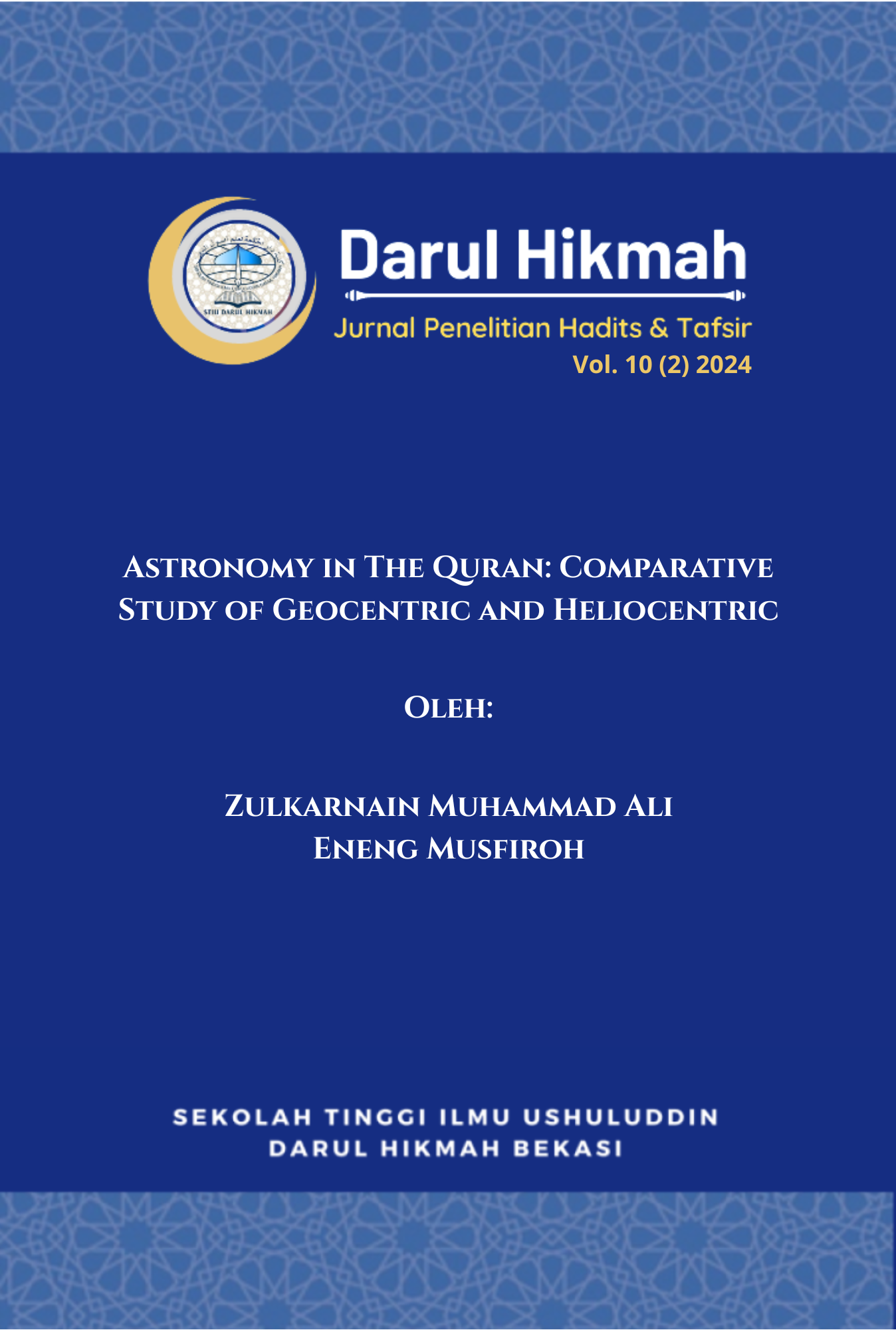Astronomy in The Quran: Comparative Study of Geocentric and Heliocentric
DOI:
https://doi.org/10.61086/jstiudh.v10i2.74Kata Kunci:
Astronomy, Geocentrism, Heliocentrism, Fakhruddin Al-Razi, Musthafa Al-MaraghiAbstrak
The study of the Qur'an has evolved significantly from the time of the Prophet Muhammad ﷺ to the present, reflecting its timeless relevance and emphasis on knowledge, including astronomy. The Qur'an contains numerous verses referencing celestial phenomena, encouraging reflection on the cosmos as a sign of Allah’s greatness and wisdom. This research explores Islamic perspectives on geocentrism and heliocentrism by analyzing Qur'anic verses related to astronomy. It investigates whether the Qur'an implies an Earth-centered universe (geocentrism) or aligns with the heliocentric model, which places the sun at the center. The study uses philosophical, scientific (`ilmy), and literary (adabi) approaches to examine the interpretations of scholars such as Fakhruddin Al-Razi, Musthafa Al-Maraghi, and others. Findings show a diversity of scholarly opinions, shaped by the scientific knowledge available during their respective eras. Some verses appear to support a geocentric view, while others resonate with heliocentric ideas. This variation underscores how Qur'anic interpretation evolves alongside scientific advancement, reflecting the dynamic interplay between revelation and reason in Islamic thought. The study emphasizes the Qur'an’s role in encouraging inquiry and its continued relevance in bridging religious teachings with modern science. It highlights the need for ongoing scholarly engagement to deepen understanding of both the Qur'an and the natural world.













